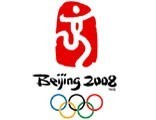
HK revises Equestrian Quarantine Rule
The government of China has revised its quarantine requirements after some of the world's top riding countries threatened not to send their best horses for the 2008 Olympic events in Hong Kong.
The US and German equestrian federations voiced their discontent at measures introduced by the SAR authorities relating to the import of horses for the games. The initial requirements could mean a horse would spend almost a month away from home. Horse owners were reluctant to have their charges sidelined from other competitions for so long.
All horses participating in the equestrian events of the 2008 Olympic Games will have to go through quarantine before and after entering Hong Kong, the venue of the events. The official in charge of the work said the purpose of the process is to ensure health for the horses.
In an interview with the official website of the Beijing Organizing Committee for the Games of the XXIX Olympiad (BOCOG) in Hong Kong on Tuesday, Dr. York Chow, Secretary for Health, Welfare and Food of Hong Kong Special Administrative Region (SAR) said about 300 horses will take part in the Olympics and some 70 will compete at the Paralympic Games. They will come from over 40 countries and regions.
The horses are subject to one-week quarantine in six quarantine centers located in North America, Europe and Oceania (Australia and New Zealand), according to an arrangement made between a Hong Kong agency, the International Equestrian Federation and the World Organization for Animal Health, Chow said, adding only those horses with health certificates are qualified for the competition.
Internationally recognized experts will make body temperature, blood and urine checkups to make sure the horses are not infected by any communicable or epidemic diseases.
After entering Hong Kong, the horses will again go through a 10-day quarantine to avoid contact with local horses and infection by any diseases. The Hong Kong authorities will provide each horse with a single shed. There are five stables, each containing over 50 such sheds. Medical services will be on hand for each stable. Serious cases can be treated at a Hong Kong horse hospital.
Dr. Chow expected the medical team to be composed of up to 30 specialists, including those from Chinese mainland.
The participating teams may bring their own veterinarians whom may be issued provisional license.
The participating horses are usually accompanied and taken care of by their own grooms. However, Hong Kong is ready to provide such services if needed, he said.
As far as the horses' forage is concerned, it can be brought in either, with the condition that certificates of inspection, quarantine and health are provided by the authorities governing the forage's source.
The horses, if in healthy condition, can conduct training at their respective stables during the quarantine period. In addition, they can take training for another week before participating in the Olympic competition.
“Hong Kong is able to extend a high-level veterinarian service, however, to take care of 300 horses in a real challenge,” Dr. Chow said.
Dr. Chow, 59, is an orthopaedic surgeon by profession. He took up the current post two years ago. He said he felt honored to be involved in the Olympic quarantine work and believed that the Olympic events will help enhance the equestrian industry in Hong Kong.
